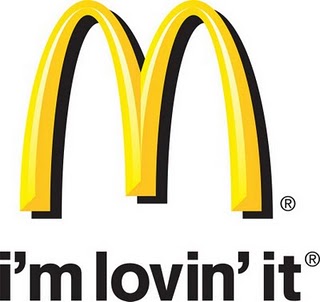McDonald’s
The modest beginnings of McDonald’s at Illinois in USA, turned out to be among the main brand names in the international scene. It has been synonymous to what is widely-accepted the fast-food concept. The company operates over thirty one thousand stores all over the world to date. It was one of the first to perfect the concept of fast service in the food industry in its early days of operations in 1955. Given that the products of the company are mainly western in character; its operations have also expanded to the Asian region. The first Indian McDonald’s outlet opened in Mumbai in 1996. In the rest of the globe, it operates thousands of store franchises that functions autonomously.

McDonald’s in India
Around the world, McDonald’s traditionally operates with local partners or local management. In India too, McDonald’s purchases from local suppliers. McDonald’s constructs its restaurants using local architects, contractors, labour and – where possible — local materials. McDonald’s hires local personnel for all positions within the restaurants and contributes a portion of its success to communities in the form of municipal taxes and reinvestment.
Six years prior to the opening of the first McDonald’s restaurant in India, McDonald’s and its international supplier partners worked together with local Indian Companies to develop products that meet McDonald’s rigorous quality standards. Part of this development involves the transfer of state-of-the-art food processing technology, which has enabled Indian businesses to grow by improving their ability to compete in today’s international markets.
McDonald’s worldwide is well known for the high degree of respect to the local culture. McDonald’s has developed a menu especially for India with vegetarian selections to suit Indian tasted and culture. Keeping in line with this McDonald’s does not offer any beef and pork items in India. McDonald’s has also re-engineered its operations to address the special requirements ofa vegetarian menu. The cheese and cold sauces used in India is 100% vegetarian. Vegetable products are prepared separately, using dedicated equipment and utensils. Also in India, only vegetable oil is used as a cooking medium. This separation of vegetarian and non-vegetarian food products is maintained throughout the various stages of procurement, cooking and serving.
The McDonald’s philosophy of Quality, Service, Cleanliness and Value (QSC&V) is the guiding force behind its service to the customers. McDonald’s India serves only the highest quality products. All McDonald’s suppliers adhere to Indian Government regulations on food, health and hygiene while continuously maintaining their own recognized standards. All McDonald’s products are prepared using the most current state-of-the-art cooking equipment to ensure quality and safety. At McDonald’s, the customer always comes first. McDonald’s India provides fast friendly service- the hallmark of McDonald’s that sets its restaurants apart from others. McDonald’s restaurants provide a clean, comfortable environment especially suited for families. This is achieved through McDonald’s stringent cleaning standards, carefully adhered to McDonald’s menu is priced at a value that the largest segment of the Indian consumers can afford. McDonald’s does not sacrifice quality for value — rather McDonald’s leverages economies to minimize costs while maximizing value to customers. The company has invested Rs 450 crore so far in its India operations out of its total planned investment of Rs 850 crore till 2007.
McDonald’s India Pvt. Ltd. has moved an application to the government seeking permission for payment and remittance of the initial franchise fee and royalty to Mc Donald’s Corporation. The permission has been sought on two grounds: McDonald’s India would pay an initial franchise fee of $45,000 on each of the McDonald’s restaurants already franchised or to be franchised, in the future, in India; and a royalty equal to 5 per cent of the gross sales from the operations of all its Indian restaurants on a monthly basis to McDonald’s International. They currently serve around 5 million customers a day and hope to grow at the rate of 50% to 70% a year.
Business Model
- Franchise Model — Only 15% of the total number of restaurants are owned by the Company. The remaining 85% is operated by franchisees. The company follows a comprehensive framework of training and monitoring of its franchises to ensure that they adhere to the Quality, Service, Cleanliness and Value propositions offered by the company to its customers.
- Product Consistency — By developing a sophisticated supplier networked operation and distribution system, the company has been able to achieve consistent product taste and quality across geographies.
- Act like a retailer and think like a brand — McDonald’s focuses not only on delivering sales for the immediate present, but also protecting its long term brand reputation.
Challenges in Entering Indian Markets
- Regiocentricism: Re-engineering the menu – McDonald’s has continually adapted to the customer’s tastes, value systems, lifestyle, language and perception. Globally McDonald’s was known for its hamburgers, beef and pork burgers. Most Indians are barred by religion not to consume beef or pork. To survive, the company had to be responsive to the Indian sensitivities. So McDonald’s came up with chicken, lamb and fish burgers to suite the Indian palate.
- The vegetarian customer — India has a huge population of vegetarians. To cater to this customer segment, the company came up with a completely new line of vegetarian items like Mc Veggie burger and Mc Aloo Tikki. The separation of vegetarian and non-vegetarian sections is maintained throughout the various stages.
Product Positioning
“Mc Donald’s mein hai kuch baat” projects McDonald’s as a place for the whole family to enjoy. When McDonald’s entered in India it was mainly perceived as targeting the urban upper class people. Today it positions itself as an affordable place to eat without compromising on the quality of food, service and hygiene. The outlet ambience and mild background music highlight the comfort that McDonald’s promises in slogans like “You deserve a Break Today” & “Feed your inner child”. This commitment of quality of food and service in a clean, hygienic and relaxing atmosphere has ensured that McDonald’s maintains a positive relationship with the customers.
Source: Docstoc.com